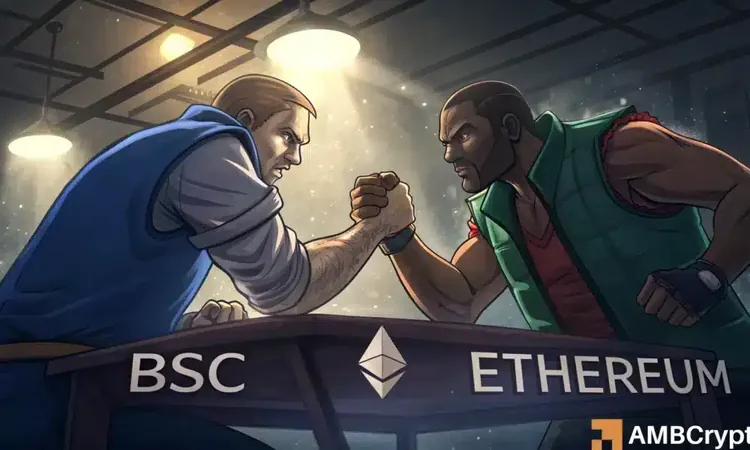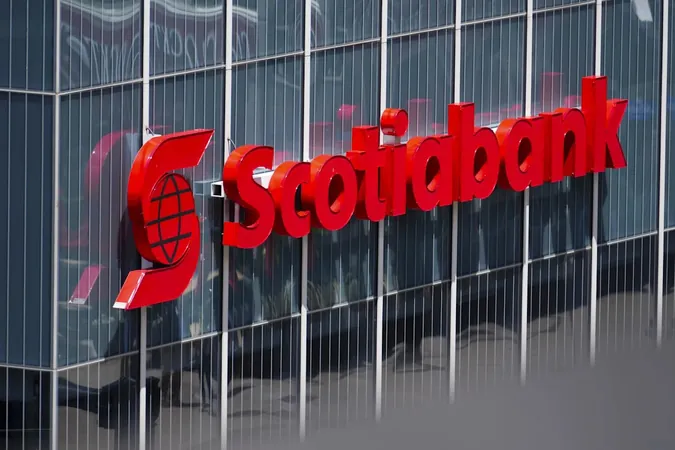
Can BSC's Maxwell Upgrade Usurp Ethereum's DeFi Throne?
2025-07-01
Author: Jacques
In a groundbreaking showdown, Binance Smart Chain (BSC) is making waves in the blockchain arena, now churning out an astonishing 115,200 blocks per day—eight times more than Ethereum's projected output.
The Race for Web3 Supremacy
As blockchain technology rapidly finds its footing in mainstream finance, Layer-1 chains are fiercely honing their capabilities, eager to snag their spot as the future of Web3.
Seizing the initiative, BNB Chain has turbocharged its performance with the newly implemented Maxwell upgrade, which halved BSC’s block time from 1.5 seconds to a blistering 0.75 seconds. This daring move aims to enhance transaction speed, user satisfaction, and overall network throughput. But does this upgrade actually give BSC the edge it needs to dethrone Ethereum?
BSC Accelerates Ahead with Maxwell Upgrade
While Ethereum developers are still debating the merits of reducing block time to just 6 seconds in their upcoming Glamsterdam upgrade, scheduled for 2026, BSC has taken decisive steps forward. The Maxwell upgrade has significantly boosted its block production rate, resulting in approximately 4,800 blocks per hour.
To put this into perspective, after Ethereum implements its proposed changes, it would generate only 14,400 blocks daily. Comparatively, BSC is on track to outpace Ethereum with its nearly eightfold increase in daily block production, solidifying its advantage in transaction speed and throughput.
Impact on On-Chain Activity and DeFi Liquidity
So, does all this newfound speed translate into actual gains for BSC's ecosystem? Early indications suggest yes. BSC now boasts around 2.04 million active addresses, nearly five times the 411,000 seen on Ethereum—a clear testament to its growing user engagement.
The decentralized exchange (DEX) figures further substantiate this trend, with a staggering $7.38 billion in 24-hour trading volume on BSC compared to just $1.44 billion on Ethereum. Such liquidity flow indicates that BSC’s improved block times are fueling substantial DeFi activity.
Ethereum Retains the Capital Advantage
However, despite its speed and user engagement, BSC still trails behind Ethereum in total value locked (TVL) and protocol revenue. This suggests that while BSC is successfully attracting users, Ethereum continues to hold sway over larger capital investments and high-stakes DeFi interactions.
In essence, the two chains reflect a fundamental structural differentiation: BSC is optimized for rapid scaling and speed, while Ethereum remains the go-to hub for more capital-intensive, yield-generating protocols.
As the dust settles from the Maxwell upgrade, BSC may be embracing higher engagement, yet it currently operates in the shadow of Ethereum’s long-standing dominance in TVL and profitability. The race isn't over, but BSC is certainly gaining speed.









 Brasil (PT)
Brasil (PT)
 Canada (EN)
Canada (EN)
 Chile (ES)
Chile (ES)
 Česko (CS)
Česko (CS)
 대한민국 (KO)
대한민국 (KO)
 España (ES)
España (ES)
 France (FR)
France (FR)
 Hong Kong (EN)
Hong Kong (EN)
 Italia (IT)
Italia (IT)
 日本 (JA)
日本 (JA)
 Magyarország (HU)
Magyarország (HU)
 Norge (NO)
Norge (NO)
 Polska (PL)
Polska (PL)
 Schweiz (DE)
Schweiz (DE)
 Singapore (EN)
Singapore (EN)
 Sverige (SV)
Sverige (SV)
 Suomi (FI)
Suomi (FI)
 Türkiye (TR)
Türkiye (TR)
 الإمارات العربية المتحدة (AR)
الإمارات العربية المتحدة (AR)